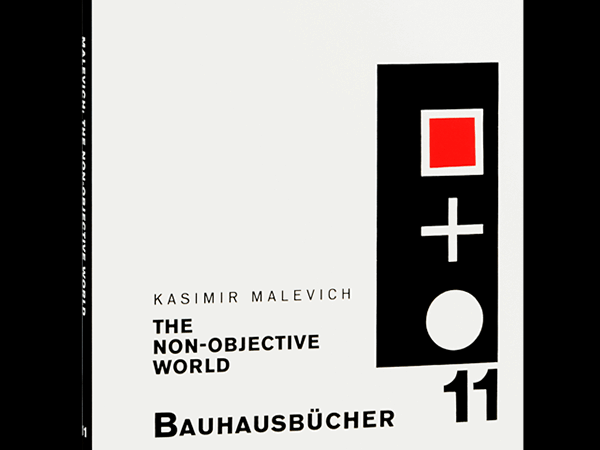FOUNDED IN BERLIN in 2017, Rixdorf Editions is an independent press dedicated to publishing neglected German texts of the late 19th and early 20th century in new English translations. In focusing on previously untranslated works of the pre-Weimar “Wilhelmine” era, the press sheds light on a literary era that is often overlooked, despite having produced writing as startlingly creative and groundbreaking – if not more so – than the more famous movements that would follow. The press’s publications list includes both fiction and non-fiction, with titles ranging from Franziska zu Reventlow’s proto-surrealist collection The Guesthouse at the Sign of the Teetering Globe to August Endell’s urban-planning meditation The Beauty of the Metropolis to Magnus Hirschfeld’s Berlin’s Third Sex, a groundbreaking early work on sex and gender that was banned (and burned) under the Nazis.
Rixdorf is essentially a one-man operation, with founder James J. Conway serving as editor, translator, and publisher. It’s a feat made even more impressive by the extensive supplemental materials – essays, letters, and other texts – that accompany each volume, which give additional context not only for the individual authors, but also for their unjustly neglected time period as a whole. We caught up with James to discuss the joy and frustrations of championing an underrepresented era, the uncanny timelessness of Wilhelmine literature, and the future of the Rixdorf project.
The works you publish are from an era that preceded many of the well-known avant-garde movements of the 20th century such as Dada and High Modernism. Does this make your project more difficult, or alternately, does it offer increased freedom for you as a publisher and translator?

It’s both difficult and freeing. The difficulty comes from the absence of the era from people’s minds and the effort of proving that there was an avant-garde, and an extremely confident and productive one at that, in Germany around 1900. When you have previously unheralded writers of the past introduced to present-day readers, there is often reference to more famous associates, to movements, to a wider societal context. But with the writers of Wilhelmine Germany, it’s not just the individuals, but the world in which they emerged that is mysterious. I feel like I’m pleading the case for the era anew each time I put a book out. And the very nature of the press presents problems; being long dead, the authors can’t go on book tours or give interviews, and being at a remove from your target readership and market means that the awards, the funding, the critical community are always somewhere else. But there is enormous freedom, and more than freedom, privilege, in bringing authors to English for the first time. The first Rixdorf book was by Franziska zu Reventlow, and I was so captivated by her story, her courage, her charisma, and it was perplexing to me that she had never been translated. I was really hoping to interest people not just in her writing, as original and compelling as it is, but also her life story. I will never be able to translate as much as I like, but just looking through my long list of potential works, and knowing that I could potentially translate them, is weirdly stimulating.
Many of the books you’ve published have an uncannily current feel, to the point it’s easy to forget they were written over a century ago. Berlin’s Third Sex (1904) and The Beauty of the Metropolis (1908) stand out in this regard, alongside other non-Rixdorf titles like Robert Walser’s Berlin Stories. Do you think there’s something particular about the time, place, or even language in which these texts were written that gives them such a contemporary feel?

That moment when you read something from the past and feel time collapsing – that’s very exciting to me. The fact that all three of the books you mentioned are about Berlin is significant, because they emerged when the city seemed to be a laboratory of ideas, where great energies unleashed by urbanisation met and merged. Even if you were born in Berlin, as August Endell was, the scope and velocity of change were such that you were confronted with an essentially new city every ten years or so. And I think that very volatility sharpened writers’ powers of observation; you couldn’t just lean on inherited assumptions. The three writers in question – Hirschfeld, Endell, Walser – all felt like they were witnessing the future, even though they also saw the terrible effect that the city could have on people. Hirschfeld documented the highs and lows in the lives of the city’s sexual outlaws while Endell offered a way of looking at the city itself in what was essentially a training manual for an aesthetically mature citizenry. And Walser seems to have been turned on by everything he encountered in Berlin. Not coincidentally, all these texts come before the First World War. Writers had an optimism about science, society and the individual, about the concept of progress itself, that you don’t really find on the far side of the war. So while for example Joseph Roth’s writings about Berlin in the 1920s convey a sense of awe, there is also an underlying menace – a memory of how bad things can get, a foreshadowing of how bad things would be again.
The latest Rixdorf title, Papa Hamlet, uses a structure that would be described as “postmodern” were it not from 1889. The book frames an unconventional narrative in a greater fictionalized-author framework, raising questions of authorship and prefiguring works like Pale Fire. How did you first come to discover this text, and what was your experience of translating it?

Early on in the lockdown I went grocery shopping and as I looked down at my list on a square of blue paper I was confronted with items that Bio Company doesn’t generally offer like “chamber nihilism”, “postmodern remix” and “lockdown in purgatory”. It turns out that in my haste and without my glasses I had picked up what I thought was my shopping list from my desk, but was instead a list of keywords I had quickly scribbled down as I was reading through Papa Hamlet. It had long been on my radar and I wasn’t sure if I wanted to dwell in the unforgiving world in which it unfolds, but in lockdown it made more sense and I decided to lean into it. The idea of being trapped in a space, as the characters are, was less abstract than ever. It’s not a story to lose yourself in; there is squalor both material and moral, the characters are repellent and there is an utter lack of improvement. In some places it’s hard to work out what’s going on, or who’s talking; the antagonism, the fragmentation, the withholding of conventional narrative signposts or emotional solace are highly modern. I originally came to it through other works of Naturalism, a movement which doesn’t seem to attract a lot of love. But I came to see specifically German Naturalism as incredibly inventive. In 2018 I translated works by a Munich writer called Anna Croissant-Rust who took the opportunities offered by the new movement and ran with them until she found herself in entirely new territory. With Papa Hamlet, I was intrigued by the framing device of the faux translation; it seemed like some arch, coked-up 1980s caper, rather than something cooked up by a couple of penniless bohemians a hundred years earlier. They were still young men and they had that sense of bravado; they were trying to hoodwink the elders of a literary world which they both disdained and aspired to join. So they pretended to be Norwegian, because German readers were hot for Scandinavia at the time. And when the truth was exposed, they just took all the critique and incorporated it into their work; it’s the kind of high-concept irony you really don’t expect from late 19th-century German letters.
The next forthcoming Rixdorf title is Three Prose Works by Else Lasker-Schüler. Her writing could be described as a form of mythmaking, where she created a world and wrote herself into it, in a style that is absurdist but also deeply emotional. It’s yet another text that feels incredibly modern, or even postmodern. Do you see Lasker-Schüler resonating with 21st-century readers, and perhaps even finding a new prominence?

Yes, she very much writes herself into her own myth, and she doesn’t stop at the edge of the page – it extends into her correspondence and her dealings with the people around her, whom she assigned roles in her self-authored world. Lasker-Schüler experienced antisemitism in the early 20th century, and one of the slurs used against Jews was that they were “Orientals”; conversely this was also a time when Orientalism, the aesthetic trappings of an imagined Middle East, were everywhere in popular culture. So I feel like she said, well, I’ll be Oriental then. Rather than retreating into assimilation, let’s embrace this pretend world of colour and stimulation and make it real. You see it happening in the course of the three works in question, which were all written in the decade prior to the First World War. I was particularly struck by the arc that forms when you line them up, even though the author herself never designated them as a triptych. Although they’re highly digressive, they essentially document her own development as an independent woman and a vital creative force, starting with the collapse of her first marriage, her abandonment of bourgeois security and her embrace of bohemianism as represented by her mentor Peter Hille. Then this alter ego she creates, generally known as “Tino”, sets out into the wider world with growing confidence, assuming different identities in a way which seems completely contemporary. There is so much to unpack in her work; there was a book which came out a couple of years ago which looked solely at androgyny in Else Lasker-Schüler’s prose; it’s over 600 pages long. And that’s just one aspect of her overlapping identities. But she is too compelling to be monopolised by academe, and it really is a great loss that she isn’t better known in the English-speaking world. Her prose requires a little context, but her poetry is emotionally very direct, sublime and so powerful. I would love to see her commanding more interest, but I expect it would take a biography from a larger publisher. As it stands she doesn’t even attract that superficial, bloggy “hey, look at this kooky dame of yesteryear” kind of attention. It’s very odd.
Any future translations or other projects on the horizon?
The Else Lasker-Schüler is the last in the current format of Rixdorf Editions; eight seemed like a good number and now I’m looking at a change of direction, different channels. Not mass-market exposure – I’m not delusional – but different ways of drawing out the unique features of the era that don’t necessarily entail translations of single works. I have my day job as a commercial translator but Rixdorf has been a pretty all-consuming side hustle, and I have a stack of ideas for articles and other projects that I haven’t had time to act on. Building on the last two books, Holz & Schlaf and Lasker-Schüler, I am very keen to share what I have discovered about the bohemian origins of modern alternative Berlin, starting in the 1880s. Currently it’s taking the form of a radio play with the working title Bismarck’s Bastards. But first – a holiday!
Learn more about Rixdorf Editions:




